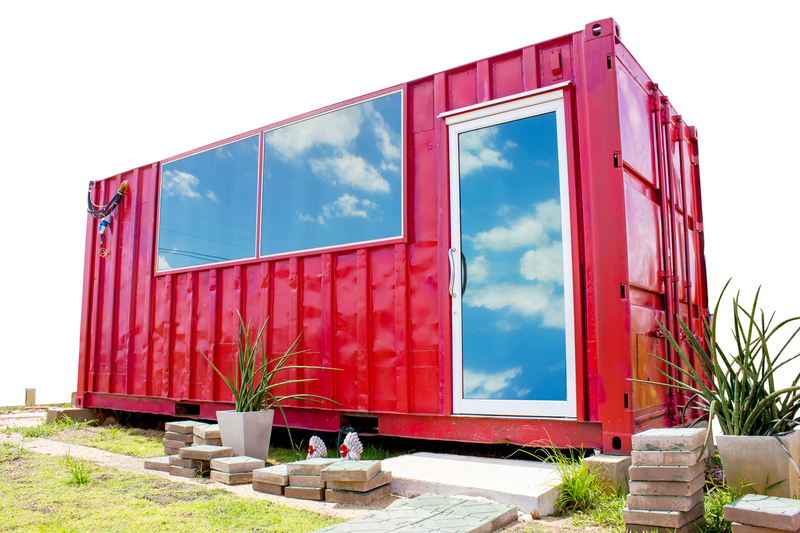Reduce the Cost of Bulky Waste Disposal With These Tips
Bulky waste disposal can quickly become expensive, especially for households undergoing renovations, businesses managing frequent large-item waste, or anyone moving house. Whether it's old furniture, broken appliances, construction debris, or garden refuse, finding cost-effective ways to manage your large waste items is essential for saving money and protecting the environment. In this comprehensive guide, we share practical strategies and top tips to help you reduce the cost of bulky waste removal and ensure responsible disposal.
What Is Bulky Waste?
Bulky waste refers to items that are too large, heavy, or awkward for regular household garbage bins or standard waste collection services. Examples include:
- Old sofas, mattresses, and armchairs
- Broken or obsolete appliances (washing machines, fridges, stoves)
- Piles of garden waste (large branches, stumps, hedge trimmings)
- Bathroom suites, doors, and flooring removed during renovations
- Construction and demolition debris
- Large toys, exercise equipment, or outdoor furniture
Because these items require special handling, disposal costs can easily add up. However, with advance planning and smart decisions, you can minimize bulky waste disposal expenses while still managing your waste responsibly.

Why Can Bulky Waste Removal Be Expensive?
Bulky waste is often charged separately from regular household refuse for several reasons:
- Special Equipment Needed: Large items require vehicles with greater capacity, hydraulic lifts, or more manpower to load and unload.
- Landfill Fees: Bulky items take up more space, driving up landfill costs and tipping fees.
- Environmental Regulations: Items like refrigerators must be safely decommissioned before disposal, incurring extra costs.
- Labour-Intensive: Collecting, lifting, and processing bulky waste is physically demanding and more time-consuming for collection crews.
Best Tips to Reduce the Cost of Bulky Waste Disposal
1. Declutter and Sort Before Booking Removal
Avoid paying to dispose of unnecessary items by thoroughly sorting your waste. Many people pay for large collections, only to later realise that some items could have been repurposed or donated.
- Separate recycleable items--metal, wood, and electronics can often be recycled or collected separately, sometimes for free.
- Check if hazardous waste, such as paint, batteries, and chemicals, require specialised disposal.
- Donate usable bulky items to charity shops, community groups, or through online platforms.
2. Take Advantage of Local Authority Bulky Waste Collections
Many municipalities offer bulky waste collection services for residents, sometimes at nominal fees or even for free on certain days of the year. Check with your local council:
- Are there scheduled large item pick-up days?
- What are the eligibility criteria and limits on items or weight?
- Do they offer discounted disposal for seniors or people with disabilities?
3. Consider DIY Drop-Off at Recycling Centres
If you have access to a suitable vehicle, dropping off your own bulky waste at a local household waste recycling centre (HWRC) can save money. Many centres accept items like:
- Old electronics (WEEE waste)
- Furniture and mattresses
- Garden waste and wood
- Metals and plastics
- Opening hours and permitted items--some centres restrict commercial waste or specific materials.
- Residency requirements and ID policies--they may only accept waste from local residents.
- Fees for certain items--there may be charges for mattresses, tyres, or excessive quantities.
4. Pool Resources With Neighbours
If your street or apartment block is due a clear-out, coordinate with neighbours to arrange a shared bulk waste removal. This way, you:
- Divide the cost of hiring a skip or professional removal truck
- Optimise the use of any minimum load prices charged by waste contractors
- Reduce the number of collection vehicles on your street--good for the environment, too!
5. Compare Quotes From Licensed Bulky Waste Collectors
For convenience, hiring a professional bulky waste removal company is sometimes the best option. For the lowest cost:
- Get at least three quotes--rates can vary widely for the same volume of waste.
- Check what's included--some companies charge by item, others by volume or weight.
- Verify they are licensed and insured--fly-tipping your waste leads to fines if traced back to you.
- Ask about environmental practices and recycling rates.
6. Dismantle Large Items Yourself
Many disposal companies (and even councils) charge more for fully assembled bulky items because they take up more space and require extra effort. Where safe and possible:
- Dismantle furniture into flat pieces to reduce volume and cost
- Remove detachable parts from appliances or garden equipment
- Bundle garden waste tightly for easier collection
7. Reuse, Upcycle, or Sell Where Possible
One person's trash is another's treasure! Before sending items to landfill, consider:
- Online marketplaces (eBay, Facebook Marketplace, Gumtree) for unwanted but usable bulky items
- Community "freecycling" groups
- Upcycling projects--turn that old wardrobe into shelves or re-cover a shabby sofa
- Offering to family, friends, or neighbours
8. Avoid Last-Minute Emergency Collections
Leaving waste disposal to the last minute can mean paying a premium for express or same-day service. For the best rates:
- Plan ahead--book removal services or skip hire several days in advance
- Take advantage of off-peak times, when demand (and prices) may be lower
- Bundle waste for fewer trips
Alternative Ways to Dispose of Bulky Waste on a Budget
When aiming to lower bulky waste disposal costs, thinking creatively can make all the difference. Here are some lesser-known (but highly effective) alternatives:
Local Reuse Charities and Social Enterprises
Many charities collect large items for free, as long as they are in usable condition. Organisations like the British Heart Foundation, Emmaus, or local furniture banks are keen for good-quality donations. Not only will you avoid landfill fees, but your unwanted items can be given a new lease of life by someone in need.
Community Bulky Waste Days & Pop-Up Events
Some councils or neighbourhood organisations offer periodic 'Community Clean-Up Days' where you can dispose of large items at special collection points at little or no cost.
- Check local council websites or community centres for upcoming events
- Follow guidelines on accepted items
- Arrive early to avoid queues and capacity limits
Manufacturer Take-Back Programmes
For items like white goods, electronics, or large furniture purchased from major retailers, ask about take-back or disposal schemes. Some shops will collect your old item when delivering a new one, often for a small extra fee (much less than hiring a separate disposal service).
Scrap and Salvage Value
Many large metal items, such as radiators, bed frames, and machinery, can be sold or given for free to scrap yards, reducing both your disposal volume and waste costs. Always check with your local recycler for eligibility and current prices.
Legal and Environmental Considerations
Bearing in mind all environmental regulations can prevent unexpected costs and help you be part of a more sustainable future. Here's what to keep in mind:
- Never dump bulky waste illegally (fly-tipping is subject to heavy fines and prosecution)
- Be aware of restrictions on certain waste, such as asbestos, fridges, and hazardous household chemicals
- Prioritise collection services with a strong recycling record
- Get a waste transfer note for business waste to prove responsible disposal

Frequently Asked Questions About Bulky Waste Disposal Costs
How much does bulky waste disposal cost on average?
Costs vary by location, type, and size of item, but average curbside council collection fees range from ?20-?60 per item. Private collectors may charge between ?70-?250 for a van load or a few large items. Skip hire for bulk loads can cost ?150-?350 depending on size and location.
Can I get free bulky waste collection?
Some councils offer one or two free collections per year for residents. Charities may collect usable items for free, and manufacturer take-back schemes sometimes offer low-cost removal when you buy a replacement.
Is it cheaper to hire a skip or use a bulky waste collection service?
For single or a few items, council or private collections are usually cheaper than skip hire. If you have a large volume or continuous waste (e.g., during renovations), hiring a skip and filling it yourself is often the most cost-effective solution.
Are there any items that cost extra to remove?
Yes--fridges, freezers, mattresses, tyres, and hazardous items often incur surcharges due to special handling or legal requirements.
Conclusion: Cut Bulky Waste Disposal Costs With Smart Choices
In summary, reducing the cost of bulky waste disposal is all about being organised, choosing the right service, and maximising the reuse and recycling of your unwanted items. Whether you're a homeowner, business, or landlord, follow these proven tips to cut your large item disposal bills while acting responsibly for your community and the environment.
Save money, reduce hassles, and help the planet--start planning your next bulky waste clear-out today!
